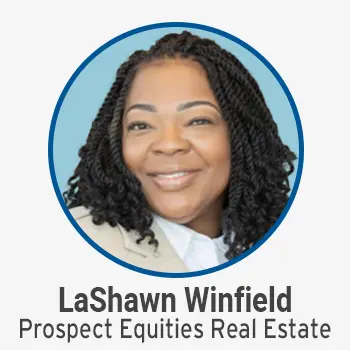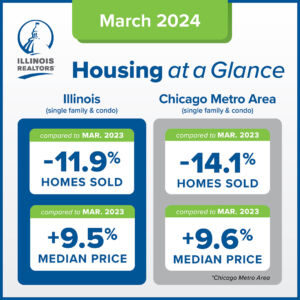Legal Case Studies: July 2020
Legal case studies in this issue:
- Case remanded to trial court to construe whether seller was required to pay broker commission.
- Owner of right of first refusal effectively declined right by making a counteroffer that sellers were not obligated to accept.
- Homeowners allowed to proceed with nuisance claim against grocery store but barred from claiming a decrease in the value of their home as damages.
- University daycare property held subject to property taxes.
- Condominium association’s claim to attorney fees did not constitute a debt subject to Fair Debt Collection Practices Act.
Research and analysis by Lisa Harms Hartzler,
Sorling Northrup Attorneys
Case remanded to trial court to construe whether seller was required to pay broker commission
In Gebroe-Hammer Associates v. Deal Lake Village, No. A‑0262‑18T3 (New Jersey Super. Ct. App. Div. Jan. 28, 2020), plaintiff real estate broker entered into an exclusive listing agreement with the defendant to market property for one year. The contract provided that the plaintiff would earn a commission if the property was sold or exchanged by anyone during the exclusive period. It also provided that plaintiff was entitled to a full commission “if a sale or exchange is consummated after the termination of this agreement to or on behalf of a party who was introduced to the property by [plaintiff].”
Plaintiff’s salesperson arranged a meeting with a person known to participate in the real estate market in the community (“Siegel”) and sent a follow-up email including a confidential offering memorandum consisting of a financial summary, description of the property, and demographic information about the surrounding area. Siegel replied that he was not interested in the property due to its high asking price of $7 million.
Plaintiff failed to locate a buyer for the property before the exclusive listing agreement expired and defendant entered into an exclusive listing agreement with another broker (Conover). When plaintiff’s salesperson mistakenly sent another email to Siegel, he informed Conover that plaintiff “was one of the brokers that brought it to me last year when they had it” and added that he did “not want to be in the middle of dueling brokers.” Siegel made a series of three incremental offers for the property, which Defendant declined.
Another person (“Ornstein”) then made an offer of $5,600,000 for the property to a sales representative at Conover. Defendant accepted this offer. Ornstein and others formed a corporation and formally contracted for and took title to the property. 406 was comprised of approximately fifteen investors, including Siegel and Ornstein, who owned a ten to twenty percent interest. Ornstein claims that at the time she made the offer for the property, she was unaware that Siegel would become an investor. She attested that it was her common practice to “tie up” a property with an offer and then subsequently raise the capital for the purchase through a network of investors.
The trial court in this case found that the plaintiff was not the “efficient procuring cause” of the sale and entered judgment for the defendant seller. The appellate court, however, held that the efficient procuring cause doctrine only applies when a contract fails to specify when a commission is earned after the expiration of an exclusive listing agreement. The doctrine “does not foreclose parties from agreeing to a different formulation, especially when, as in this case, both parties to a contract are sophisticated and experienced in the sale of commercial realty.” Those parties “are not precluded as a matter of law or public policy from entering into a contract that provides that introduction of the property to the buyer is sufficient to justify a commission.” Consequently, the trial court must look first to the terms of the contract.
The appellate court agreed with the trial judge that the term “introduce” as used in the contract meant familiarizing a potential purchaser with a property, and that the email and attached prospectus detailing the property that plaintiff’s agent sent to Siegel “was enough to pique Siegel’s interest in the building as an investment opportunity” and constituted an “introduction” within the meaning of the contract.
Nevertheless, the court remanded the case for the trial court to determine whether the property was sold “to or on behalf of” Siegel. The court held that it was a matter of contract interpretation as to whether, for example, the parties intended that plaintiff should receive a commission based on introducing the property to a person who then became an investor in a corporation after another person placed an accepted offer. The court also declined to follow precedent in other states imposing a duty on real estate brokers to disclose to sellers the names of everyone they introduced to the property. “The parties to an exclusive listing agreement are of course free to include such a registration requirement as a term of the contract, just as they are free to incorporate the elements of the efficient procuring cause doctrine into the terms of the contract.”
Owner of right of first refusal effectively declined right by making a counteroffer that sellers were not obligated to accept.
In King v. Rossi, 2020 IL App (3d) 190086, a development’s covenants granted a right of first refusal to lot owners when an offer to sell an adjacent lot was accepted by the seller. The Illinois appellate court defined “right of first refusal” as a preemptive right that it is a condition placed on the sale of property. It is unlike an option because the holder of the right of first refusal cannot force the sale of property at a stipulated price and it does not arise until the seller notifies the holder of the right of an offer or contract by a third party.
In this case, the sellers owned Lots 116 and 141, which were situated back-to-back. Lot 116 was unimproved except for a driveway leading to Lot 141, where a house and garage were located. The sellers listed both lots for sale as a “package deal” and received an offer of $146,000. In compliance with the restrictive covenant, the sellers notified the owner of the lot on one side of Lot 141 and the homeowners association, which owned property on the other side of both lots. Each declined to exercise their right of first refusal. The plaintiff, who owned Lot 117, did not receive a notice.
After the sale closed, the plaintiff contacted the listing broker. Realizing a mistake had been made, the broker supplied the form to decline the right of first refusal and told the plaintiff she could make an offer for both lots at the price the buyers paid. The plaintiff asserted she had the right to purchase Lot 116 for fair market value. The trial court granted summary judgment to the defendant sellers.
On appeal, the plaintiff claimed she had not been given proper notice of her right of first refusal because the broker had not supplied a copy of the contract between the sellers and buyers. The court disagreed. The notice given to plaintiff adequately contained the price, the lot numbers, and the terms of the sale. “It is sufficient as long as the terms can be determined so that the holder of the right has the opportunity to meet the material terms and conditions of the third-party offer.”
Rather than seeking additional information to determine whether she wanted to exercise her right of first refusal, the court concluded that the plaintiff had responded with a different offer to buy Lot 116 at fair market value. The court explained that “any modification of terms of an offer constitutes a rejection of the original offer and becomes a counteroffer.” By proposing different terms, the plaintiff essentially made a counteroffer and declined to exercise her right of first refusal. The court affirmed judgment in favor of the defendants.
Homeowners allowed to proceed with nuisance claim against grocery store but barred from claiming a decrease in the value of their home as damages
In Avery v. GRI Fox Run, LLC, 2020 IL App (2d) 190382, the plaintiff homeowners originally purchased their house when a Dominick’s grocery store abutted their rear yard. Large conifer trees and a grassy retention area buffered delivery truck noise. When a Mariano’s chain demolished the old store, it constructed a new one with a loading dock much closer to the plaintiff’s lot, destroyed the tree buffer, and began receiving deliveries at all hours of the day and night. Plaintiffs sued Mariano’s for violating the village noise ordinance and for private nuisance. The trial court dismissed the complaint because of a lack of specificity in the allegations.
The appellate court first held that the allegations as to noise violations were adequate and should not have been dismissed. The ordinance provided for a procedure by which residents could file suit to enforce its provisions and the plaintiffs sufficiently alleged that they had conducted noise tests on certain days that exceeded the limits.
The court also agreed that plaintiffs had sufficiently pleaded their private-nuisance counts. A private nuisance is an invasion of another’s interest in the use and enjoyment of his or her land and must be substantial, either intentional or negligent, and unreasonable. It must consist of an invasion by something perceptible to the senses that is offensive and makes life uncomfortable, such as smoke, fumes, dust, vibration, or noise produced by the defendant on its own land and impairing the use and enjoyment of the neighboring land.
The court found that the complaint contained sufficiently specific factual allegations that noise from the truck deliveries at the Mariano’s store was perceptible at their property, unreasonably interfered with their ability to enjoy their property, and made life uncomfortable for them because it was unreasonably loud and exceeded the noise ordinance’s allowable limits. Plaintiffs also asserted that overnight deliveries to the Mariano’s store were frequent and they specified six dates in 2018 on which late-night or early-morning deliveries occurred. They specified injuries such as health issues, annoyance, discomfort, disruption, invasions of privacy, and the inability to fully use and enjoy their property.
Plaintiffs’ complaint included similar allegations concerning the air, odor, and light pollution from defendants’ property and operations. They alleged that air and noxious-odor pollution exceeded permissible levels. They also alleged that light from exterior lighting began to illuminate their property when trees that buffered the lights were removed in the fall of 2016 and was unreasonably bright and continuous. According to the court, all of these claims were adequate and should not have been dismissed.
Plaintiffs also alleged as damages that the market value of their property decreased substantially. On this point the court disagreed with the plaintiffs. “The measure of damages for a permanent nuisance is the depreciation in the market value of the property injured.” For a temporary nuisance, the measure of damages is the personal inconvenience, annoyance, and discomfort suffered on account of the nuisance.” In this case, the court characterized the nuisance as temporary—the alleged negligent operation of a legal enterprise, a grocery store, where the nuisance was abatable with, for example, installation of fencing and trees.
The court concluded that plaintiffs could not seek damages for the decrease in the market value of their home but that the trial court otherwise erred in dismissing the nuisance claims, because plaintiffs also sought damages for inconvenience, health issues, annoyance, discomfort, and the inability to fully use and enjoy their property.
University daycare property held subject to property taxes
In University of Chicago v. Department of Revenue, 2020 IL App (1st) 191195, the University owned two parcels improved with buildings in which Bright Horizons, a for-profit entity, provided daycare services. The University claimed offering child care services on campus was essential to attract and keep university employees. Bright Horizons paid no rent to the University and generated nearly $500,000 in profit a year from each facility. When the University applied for an exemption from real estate taxes, on the basis that it did not lease the two properties “with a view to profit,” the Illinois Department of Revenue denied the application. On administrative review, the circuit court reversed the Department’s decision. The Department appealed.
The state statute granting property tax exemptions reads in part, “all property of schools, not sold or leased or otherwise used with a view to profit, is exempt.” In this case, two questions were raised: (1) were child care services reasonably necessary to fulfill the University’s objectives and (2) since the University did not receive any rent, was the property “used with a view to profit.”
On the first question, the appellate court held that “the availability of secure, on-campus childcare is more than a mere convenience. It is a necessity that directly affects an employee’s willingness and ability to provide services for the University.” Consequently, the court held that the property was “primarily used for purposes that are reasonably necessary for the accomplishment and fulfillment of the educational objectives, or efficient administration, of the University.”
On the second question, the court noted that tax-exemption provisions must be construed narrowly and gave deference to the Department’s application of the statute. It found nothing in the statute stating that the owner of the property must be the entity that profits for the exemption to be inapplicable. It therefore agreed with the Department’s interpretation that the phrase “used with a view to profit” refers to any entity profiting from the use of the property, not just the owner of the property.
The court reversed the circuit court’s order and affirmed the Department’s decision that the University and Bright Horizons were not entitled to a property tax exemption.
Condominium association’s claim to attorney fees did not constitute a debt subject to Fair Debt Collection Practices Act
In Spiegel v. Kim, 952 F.3d 844, 845 (7th Cir. 2020), a condominium association had sued in state court a former board member (Plaintiff) for taking several unauthorized actions, including falsely holding himself out as president, attempting to unilaterally terminate another board member, freezing the association’s bank accounts, sending unapproved budgets to unit owners, and filing unwarranted lawsuits on behalf of the association. The association sought to enjoin Plaintiff from interfering with board decisions or holding himself out as a director, and to recover damages, costs, and attorneys’ fees for his misconduct. The condominium declaration provided that condominium owners who violated the board’s rules or obligations would pay any damages, costs, and attorneys’ fees that the association incurred as a result.
Plaintiff not only denied any wrongdoing but went on the offensive by filing his own complaints and motions against the association, its lawyers, and nearly every condominium resident—racking up 385 separate filings in the Cook County court. The court dismissed his claims with prejudice, finding that the “filings had ‘no basis in law or fact,’ were riddled with ‘blatant lies,’ and amounted to ‘a pattern of abuse, committed for an improper purpose to harass, delay and increase the cost of litigation.’” The state court ordered Plaintiff to pay over $700,000 in fees and sanctions.
Plaintiff then initiated this lawsuit against the association’s attorney in federal court in an attempt to invalidate the attorney fees under the Fair Debt Collection Practices Act (FDCPA). Plaintiff argued that the demand for attorney fees in the state court suit violated the FDCPA and pointed to a 1997 case decided by the federal court in which it held that assessments imposed by a homeowners’ association on its members could create a consumer debt under the statute. The court distinguished that case, however, because the debt “came under obligations to pay assessments that arose directly from the association’s declaration and bylaws, to which the members consented upon purchasing their condominiums.” In this case, Plaintiff’s “obligation to pay attorneys’ fees arose from his actions as a board member,” not from his purchase of a condominium unit. The connection between a purchase of a condominium—a consumer transaction subject to the FDCPA, and the Plaintiff’s acting as a board member was too tenuous to characterize the attorney fees as a consumer debt. The federal trial court’s dismissal of Plaintiff’s suit was affirmed.
About the writer: Lisa Harms Hartzler is Of Counsel at Sorling Northrup Attorneys in Springfield. She graduated from the American University Washington College of Law in 1978 and began her legal career in Chicago. She has provided legal support for the Illinois REALTORS’ local governmental affairs program since she joined Sorling in 2006 and focuses her practice on municipal law, general corporate issues, not-for-profit health care law, and litigation support.





 Create professional development programs that help REALTORS® strengthen their businesses.
Create professional development programs that help REALTORS® strengthen their businesses.
 Protect private property rights and promote the value of REALTORS®.
Protect private property rights and promote the value of REALTORS®.
 Advance ethics enforcement programs that increase REALTOR® professionalism.
Advance ethics enforcement programs that increase REALTOR® professionalism.
 Protect REALTORS® by providing legal guidance and education.
Protect REALTORS® by providing legal guidance and education. Stay current on industry issues with daily news from Illinois REALTORS®, network with other professionals, attend a seminar, and keep up with industry trends through events throughout the year.
Stay current on industry issues with daily news from Illinois REALTORS®, network with other professionals, attend a seminar, and keep up with industry trends through events throughout the year.


